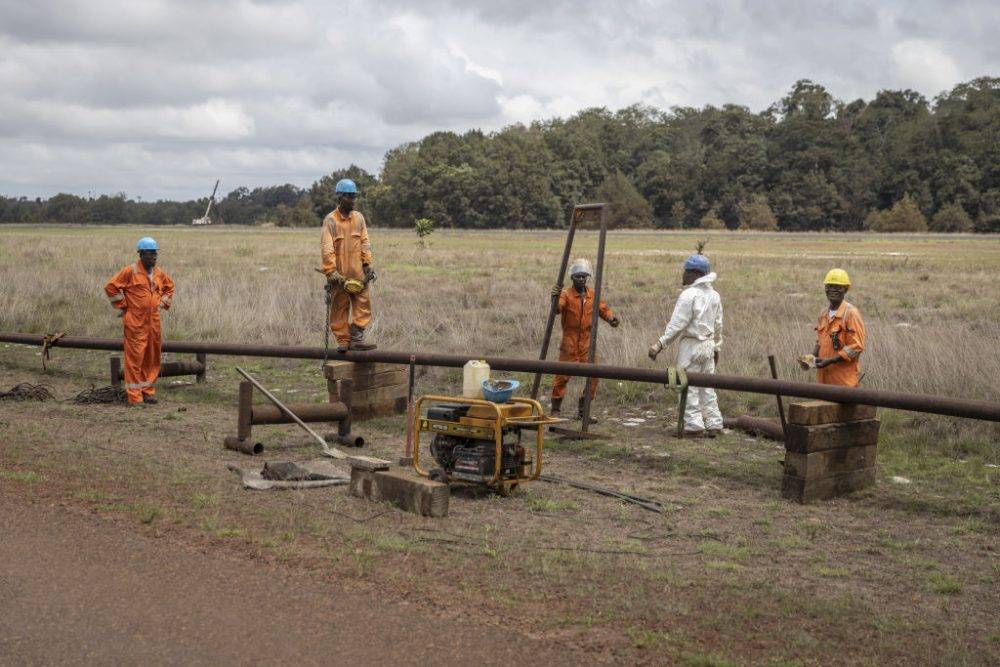
African leaders should prioritise long-term climate solutions at COP28, including the adequate operationalisation of the Loss and Damage Fund, the mobilisation of the necessary climate finance and technology access and transfer.
These measures are crucial for enabling the continent to adapt to the severe impacts of climate change and to address the loss and damage that it has suffered from it.
As the continent continues to look for ways to tackle climate change, the African Development Bank (AfDB) is increasingly pushing for debt-for-nature/climate swops as a “bold and creative solution” to the triple continental crisis of debt, climate change and biodiversity degradation.
At first glance, they might appear attractive given, as the AfDB states, “a debt-for-nature/climate swop involves the cancellation of some amount of a country’s sovereign debt in exchange for environmental action on the part of the debtor country. This debt can be written off directly by the creditor … or it can be purchased at a discount by a donor organisation, often a large environmental NGO, with a similar debt write-off occurring thereafter”. However, upon closer examination, they are a distraction and not the solution they are made out to be by the AfDB and others.
Debt-for-nature/climate swops are a distraction and not a solution
Evidence shows that what debt-for-nature swops are to generate is a drop in the ocean when compared to the necessary $280 billion that the continent needs by 2030 to adapt to climate change. Indeed, debt-for-nature/climate swops have had minimal fiscal impact in countries where they have been implemented. In their 35 years of existence since 1987, these swops have only generated around $318 million in Africa. However, by 2018, African countries’ debt to multilateral financial institutions alone was estimated at $110.45 billion.
The AfDB acknowledges that these swops have had minimal fiscal impact in Africa but still proceeded to produce an 80-page report in 2022 touting the Belize debt-for-nature/climate swop as a uniquely successful one that African countries should mimic. In the Belize swop, the face value of the swopped debt was $553 million, approximately 30% of Belize’s GDP in 2021. However, out of the total $363 million loaned to Belize in this swop, only 6% or USD 24 million, directly contributed to environmental conservation. The bank’s uniquely successful swop is sadly a case of greenwashing.
Swops allow the climate crisis to be a means of capital accumulation
African countries’ external debt is estimated to be divided as follows: multilateral financial institutions, 35%; private sector, 32%; China, 20% and Paris Club, 10%. While debt-for-nature climate swops distract from long-term climate solutions, they allow these creditors to accumulate capital from the continent.
For instance, the AfDB has joined the International Monetary Fund and the World Bank in actively advocating for these swops. Also, in 2021, Paris Club creditors started obliging these swops as part of the ways to mobilise the necessary climate finance for developing countries as the Paris Agreement requires them to. This was at COP26 in Glasgow. It might help to note that the Paris Club consists of 22 creditor countries, all of which, except for Brazil, are developed countries with a significant historical responsibility for climate change.
Any of the above creditors can promptly secure immediate debt repayment through debt-for-nature/climate swops. As a creditor, it has the option to forgive a portion of the debt owed to it by an African country, agreeing to receive only the remaining balance.
This approach allows such a creditor to resolve a precarious or distressed financial position effectively. This is a strategic decision. It is rooted in the recognition that, when considering the time value of money, immediate repayment of a significant debt portion holds greater value than waiting for the full debt amount over an extended period or potentially never receiving it.
A donor institution, typically an environmental conservation organisation like The Nature Conservancy or the World Wild Fund, facilitates this process by enabling the creditor to exit the risky or distressed position in exchange for an immediate cash payment. At the same time, the creditor regards the forgiven debt portion and the environmental actions taken under the swop agreement as integral components of its contribution to mobilising climate finance for developing countries, as it is expected under the Paris Agreement.
Furthermore, any of the creditors that African countries are indebted to can also serve as a donor. They can do this by accumulating capital by purchasing an African country’s debt from another creditor at a reduced price and reselling the purchased debt to the concerned African country by charging interest.
In its 2022 report, the AfDB, citing the “wisdom” of its president, Akinwumi Adesina, clearly illustrates how it can purchase, resell and charge interest. Also, a creditor such as the AfDB can amass capital from debt-for-nature/climate swops by receiving fees for playing the role of the intermediary institution facilitating the swop. Credit Suisse played such a role in the Belize swop.
African leaders should go after long-term climate solutions
Gabon took the lead in August 2023 by being the first African country to embrace debt-for-nature/climate swops after the AfDB’s report advocating for them. Other countries, such as Cabo Verde, Guinea-Bissau, Mauritania and Senegal, are contemplating entering debt-for-nature/climate swops soon, with many more likely to follow suit because of the adoption of the African Leaders Nairobi Declaration on Climate Change and Climate Action in September 2023.
This declaration, which represents the African leaders’ unified voice at COP28, gives legitimacy to the AfDB report by promoting nature-based solutions such as debt-for-nature swops as viable climate solutions. However, African leaders should refrain from this distraction and should instead be prioritising long-term climate solutions.
Nciko wa Nciko serves as a climate justice advisor for Amnesty International in the East and Southern Africa Regional Office.
